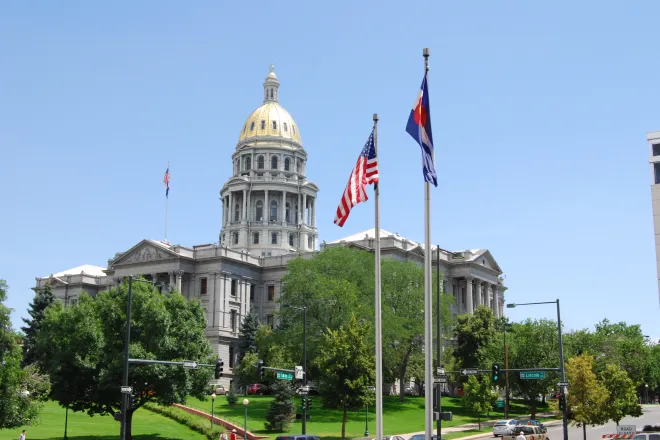
Grant helps Legal Aid of Nebraska Housing Justice Project amidst rising evictions
Click play to listen to this article.
(Nebraska News Connection) From July 2023 to July 2024, Nebraska landlords filed more than 10,000 eviction cases. That's compared with an average of around 8,400 filings per year between 2012 and 2019. Legal Aid of Nebraska's Housing Justice Project represents hundreds of Nebraskans facing eviction each year, and a new $50,000 grant from the United Way of the Midlands will help with this work.
Scott Mertz, Housing Justice Project Director, said the shortage of quality affordable housing makes it a bit of a "seller's market," contributing to the rise in evictions.

"People are not shy about just going right to eviction court when they have tenants that they want to just get rid of. It's relatively easy; it's relatively quick," he explained. "That's also something we'd like to push back against - make it a little more difficult, make it a little more time-consuming, so that people aren't just going right to the eviction."
Mertz pointed out that even when an eviction filing in Nebraska ends without a court judgment, it will show up on a person's background check. This can impact their housing and even employment options for years to come. In 2023, 60 percent of eviction filings nationwide were against women, with Black women disproportionately represented.
A "clean-slate" bill which would have "sealed" eviction filings when cases were dismissed or vacated was unsuccessful in the recent Unicameral session. Mertz says the potential long-term harm an eviction filing can cause keeps a percentage of the people they see from pursuing their rights in court.
"They talk to us and say, "Well, I got this notice; I don't agree with it." We think there's a case here; there's evidence. We're more than happy to present it. But they leave anyway because it's scary - having a day in court and having your name in a case that's never going to go away, " he continued.
Mertz said the United Way grant will help toward their goal of doing more "affirmative litigation," that is, addressing issues before they reach a court filing.
"Quality of housing, conditions, safety concerns, discriminatory practices in renting or terminating housing. These are all things that happen all the time, and we can only do so much with the resources and the amount of attorney hours that we have, " he explained.
He encourages anyone concerned they face a risk of losing their housing to call or go online to find out what their rights and options are. And he stresses that things move very fast from eviction notice to court date.

















